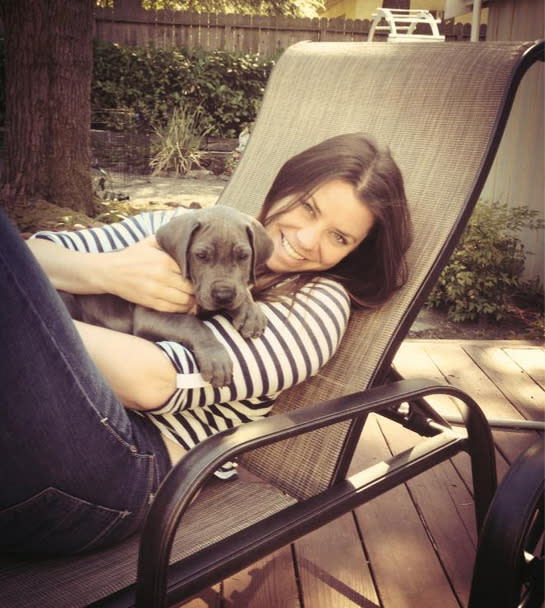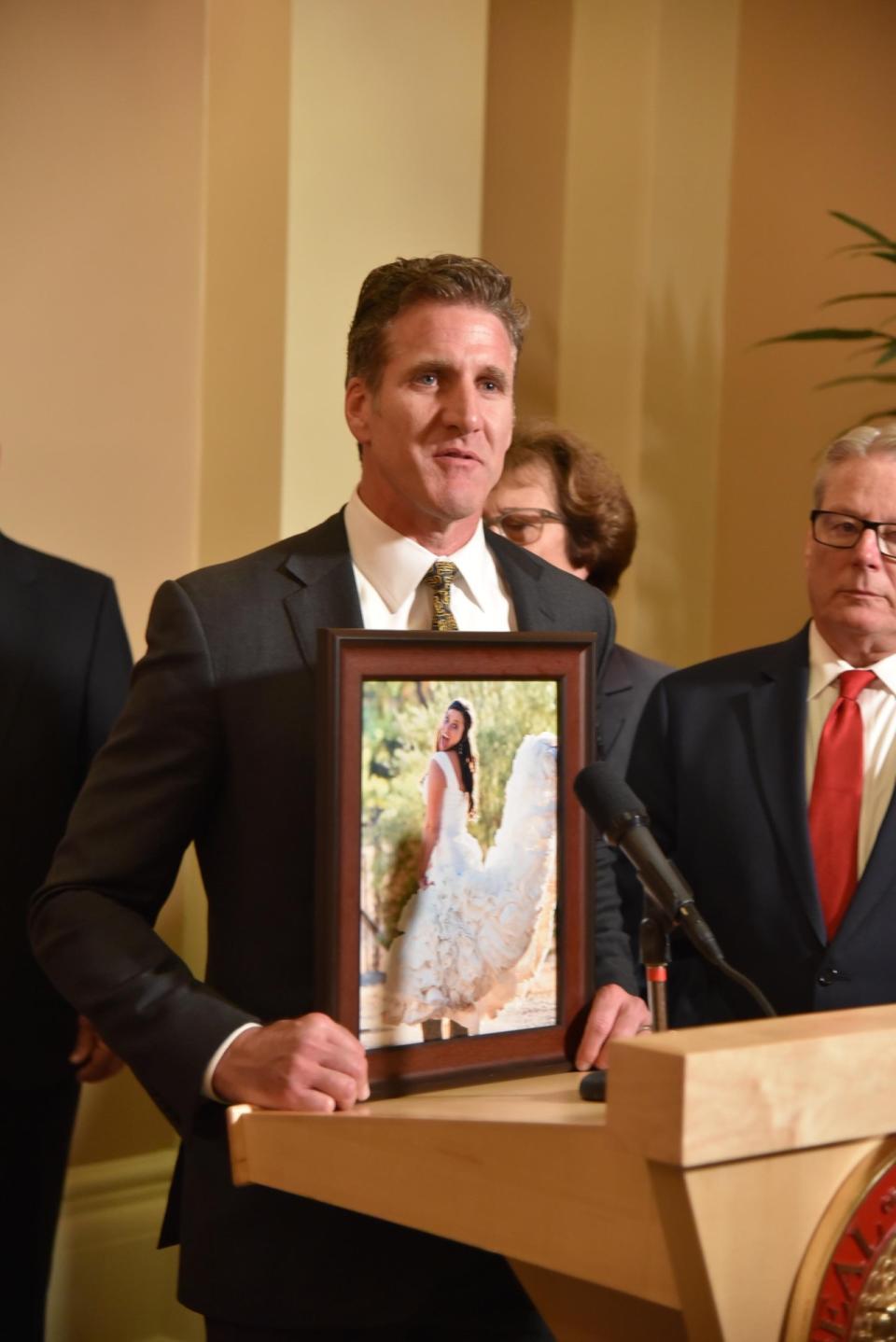Dan Diaz Shares His Promise to Brittany Maynard a Year After Her Death

“Leaving our home, having to find a house to rent in Portland, find her a new medical team … nobody should have to go through that at the end of their life.” – Dan Diaz (Photo courtesy The Brittany Fund)
Dan Diaz, the husband of the late death-with-dignity advocate Brittany Maynard, has been through a lot in the past year — but he says it’s only motivated him to carry on his wife’s legacy.
“It’s been a tough year, just adjusting to things without Brittany,” Diaz tells Yahoo Health.

(Photo courtesy The Brittany Fund)
Maynard, who suffered from an aggressive and terminal form of brain cancer, quickly became the face of the death with dignity movement last year. After treatments and surgery proved ineffective, she and Diaz moved from their home in California to Oregon so that she could take advantage of the state’s Death With Dignity Act, which legalizes medical aid in dying.
Maynard ended her life on Nov. 1, 2014, just a few days before her 30th birthday, with medication prescribed by her doctor.

(Photo courtesy The Brittany Fund)
Since Maynard’s death, Diaz has become a full-time advocate for the cause his wife championed, at her request. “In order to keep my promise to Brittany and to honor her, in July I left the industry I’d worked in for 21 years,” Diaz says. He now works for the nonprofit death-with-dignity organization Compassion & Choices, which closely worked with Maynard at the end of her life.
Related: Brittany Maynard: “I Want to Die on My Own Terms”
He has also moved back to the couple’s home in northern California. “She had instructions for me, and was very thorough in that regard, and told me to get back home,” Diaz says. “We were only in that house [in Oregon] to afford her a gentle passing.”
Diaz says he’s been through a series of stages in the grief process, both while his wife was alive and after her death. He describes the anxiety and fear they went through after Maynard was first diagnosed, and then the build-up to her death on Nov. 1.

(Photo courtesy The Brittany Fund)
“Leading up to that date, there were the emotions that I’m going to miss my wife, the person that I love,” he says. “But her death was coming, of that there was nothing that could be done. The fact that she was able to avoid suffering needlessly, there’s a certain amount of solace that I’m getting from that … her passing was a gentle one.”
Related: One Woman’s Quest to Die With Dignity—and What It Means for Us All
Diaz says his wife’s experience, as well as meeting people in a similar situation, drives him to continue to advocate for the cause. “It was the promise that I made to Brittany that I would do whatever I could to help pass legislation so that no one else has to go through what she went through, and what we went through,” he says. “Leaving our home, having to find a house to rent in Portland, find her a new medical team … nobody should have to go through that at the end of their life.”
A lot has changed in just one year, thanks to Maynard and the efforts of others in her difficult position, as well as several advocates and non-profit organizations.
Here are the highlights:
New Legislation and Political Support
In early October, California became the fifth state to pass legislation to allow terminally ill patients to legally end their own lives, joining Oregon, Vermont, Montana, and Washington.
“The passage in California has had a huge impact on the progress that we’re going to be making with other states,” George Eighmey, vice president of the nonprofit Death with Dignity National Center, tells Yahoo Health.
There are now death-with-dignity bills working through the legislature in more than 25 states, Jessica Grennan, national field and political director for Compassion & Choices tells Yahoo Health. “We’re seeing people running for office talking about this issue,” she says. “We’re also seeing more diverse bill sponsors — Democrats, Republicans…the age range of those sponsors is also very diverse.”
New York, Maine, Maryland, New Hampshire, Hawaii, Minnesota, and Illinois show promise, Eighmey says. New Jersey’s house and senate recently passed a bill, but Eighmey says that Gov. Chris Christie is expected to veto it.
A Change In Public Opinion
According to polls, most Americans now support aid-in-dying legislation.
Gallup’s Views and Beliefs survey, which was published in May, found that 68 percent of Americans agreed that “Individuals who are terminally ill, in great pain and who have no chance for recovery, have the right to choose to end their own life.” Support has risen nearly 20 points in the last two years, Gallup says, and climbed 19 points in 2015 among 18- to 34-year-olds.
A Harris poll conducted shortly after Maynard utilized Oregon’s Death with Dignity Act found that nearly 75 percent of Americans agree that people who are terminally ill have the right to choose to end their own life.
Growing Momentum
People don’t just agree that terminally ill patients should have access to aid-in-dying; They’re taking action. “People are calling our office,” says Grennan. “My phone has been ringing off the hook.”
Eighmey paints a similar picture. “People are talking about it, that’s the major change that has occurred since Brittany Maynard’s death,” he says. “They’re writing letters to editors and forming organizations.”
And Diaz is a part of that momentum. He’s traveled around the country to speak in favor of aid-in-dying legislation and says he’ll continue to do so: “There are 45 other states that don’t have this legislation, so my efforts continue.”
Let’s keep in touch! Follow Yahoo Health on Facebook, Twitter, Instagram, and Pinterest. Have a personal health story to share? We want to hear it. Tell us at YHTrueStories@yahoo.com.

